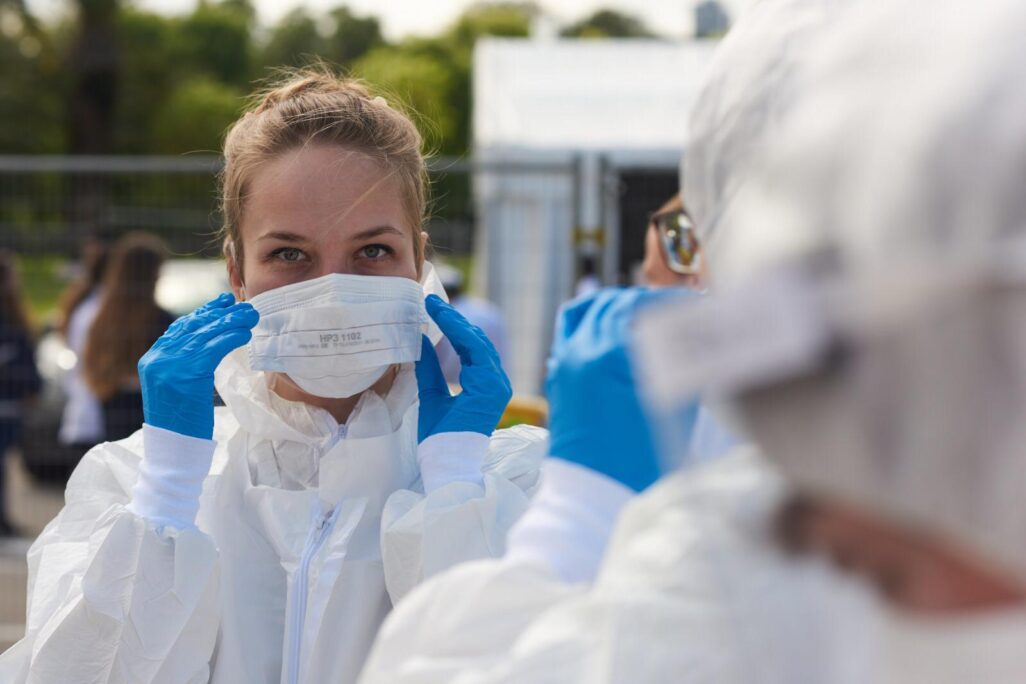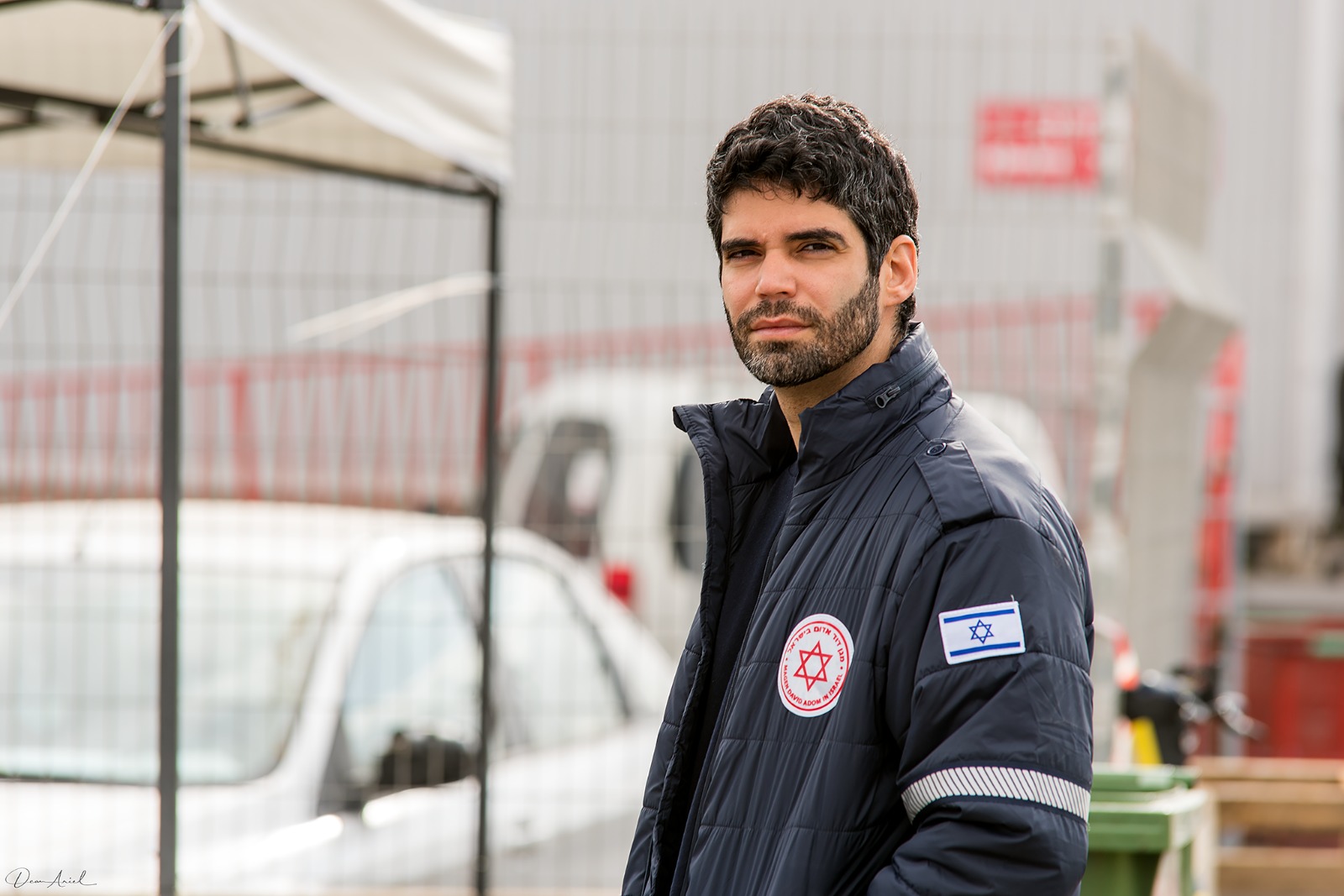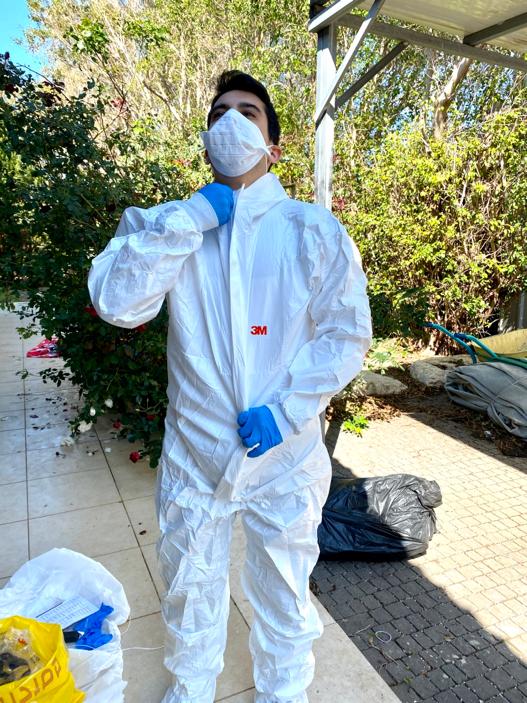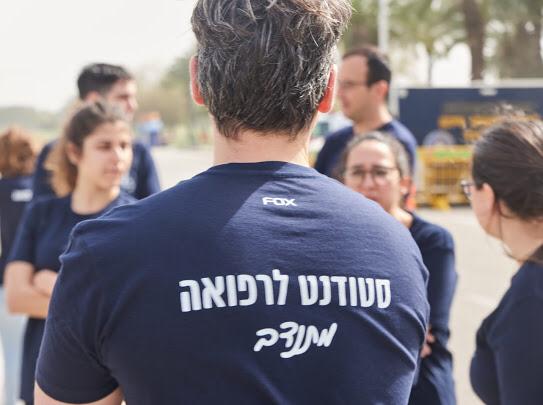
“We are performing a dangerous and difficult public service,” says Omri Cohen, a medical student at Bar Ilan University and a member of the leadership of the Federation of Israeli Medical Students. Cohen manages the hundreds of medical students who have been collecting samples for coronavirus tests across Israel. The students signed up through the Federation of Students to volunteer for this task a month ago when the need first became apparent, and have been performing this critical function without compensation ever since. However, recently some of the students have begun to call on the government to recognize and compensate them for their labor.
“The entire COVID-19 testing system relies on us. How can the government send people to the frontlines of the war against COVID-19 without compensation?” asks Inbar, a medical student from one of Israel’s well-known medical schools, who participated in the Federation of Students’ coronavirus testing volunteer network until she needed to find paying work.

I think that volunteering is important and wonderful, but when the whole system of Israel’s response to COVID-19 is dependent on volunteer labor, it becomes a problem
According to the Federation of Israeli Medical Students, the students’ labor has been indispensable to the government’s efforts to increase the number of coronavirus tests from 700 per day in mid-March, to almost 7,000 per day by mid-April. “It was a joint effort. Magen David Adom trained us to collect samples, the Defense Ministry obtained the cotton swabs and other supplies, and we provided the labor,” Cohen explains.
The Federation of Medical Students’ volunteer organizing efforts were encouraged by the Ministry of Health, which sent a letter on March 17 to the Federation of Students calling for medical students to volunteer to reinforce Israel’s medical staff.
“Many patients direct their anger and frustration at us”
The work of collecting coronavirus testing samples isn’t easy. Each five-hour shift involves standing in the heat in protective suits and dealing with patients’ emotional reactions to the possibility of being sick with COVID-19.
“Many people direct their anger and frustration at us,” Cohen notes. He says that because their work demands close contact with potential COVID-19 patients, the students worry about becoming infected themselves. Many of the volunteers chose to remain in their student apartments when Israel’s lockdown began, rather than returning to their family homes or sheltering with partners like many other students chose, in order to refrain from exposing their loved ones. “I worry about infecting my girlfriend,” Cohen adds.

"In the beginning I signed up for everything that the Federation of Students offered because I wanted to participate, and I was proud to do my part for society. But slowly I realized that this isn’t a short-term need, and the expectation wasn’t to volunteer a couple of times, but rather that the whole country’s testing system depends on medical student volunteers,” says Inbar, a final-year medical student. “At that point I started feeling uneasy with the situation. I think that volunteering is important and wonderful, but when the whole system of Israel’s response to COVID-19 is dependent on volunteer labor, it becomes a problem.”
Inbar describes pressure to volunteer for as many shifts as possible and to travel as much as an hour from home in order to staff coronavirus testing sites. “It’s extremely important and necessary work, and it needs to be paid work,” she adds.

There’s no reason for people who are doing dangerous and difficult work to have to worry about paying their rent
"We’ve been fired from our jobs, we’re having money flow problems right now just like everyone else,” says Noam, another final-year medical student at a major Israeli medical school. “Since the beginning of the coronavirus crisis, the government has found funds for all kinds of needs. The quarantine hotels aren’t hosting COVID-19 patients without compensation, the staff aren’t working there as volunteers. The government found funds for that. But the way it’s turned out, those of us who are doing the most dangerous and difficult direct work of entering the homes of suspected COVID-19 patients and swabbing them, ended up without anybody in the government thinking that maybe they should find funds to pay them. We have bills to pay just like everyone else, and there’s no reason for people who are doing dangerous and difficult work to have to worry about paying the rent.”
Inbar eventually stopped working at the testing centers and found a paying job in childcare for essential employees. She explains that “At a time when unemployment numbers are skyrocketing and the government is paying unemployment checks, it makes sense to compensate people for their work, rather than forcing us to file for unemployment and receive government funds while we are working for Magen David Adom. We want to use our medical training to provide critical services, but we need to be paid.”
In the past week, there have been some efforts to compensate the medical students. Because government funds haven’t materialized, and the process of accreditation of the COVID-19 testing sites for clinical hours has been complicated, the Federation of Medical Students has begun to solicit donations for a scholarship fund for volunteering students. The Health Ministry has meanwhile published an employment form for COVID-19 related jobs for medical students, but according to Inbar, “Most of my friends are still waiting to hear back from them.”
Omri Cohen says that the Federation of Students has sought to open dialogue with the Health Ministry regarding student wages and has not received a response. “We’re in touch with the Ministry about topics like training students to provide critical care if needed, but on the topic of wages, nobody is willing to hear what we have to say,” he says. Regardless, Cohen doesn’t want to close down the students’ partnership with Magen David Adom. “We started volunteering and, together with Magen David Adom, we built the entire testing system. We’re not going to dismantle what we’ve built and endanger citizens.”
Magen David Adom told Davar that “The students came to volunteer.” The organization did not provide figures for the percentage of COVID-19 samples collected by medical students, but disputed the students’ claim that they collect “almost all” of the samples. A Magen David Adom representative told Davar that “We appreciate the students’ contribution, but if they decide to stop volunteering, our other workers and volunteers will continue to provide testing services to the Israeli public.’’
The Health Ministry did not respond to Davar’s request for comment regarding the student volunteers and regarding funds transferred to Magen David Adom for testing services.






